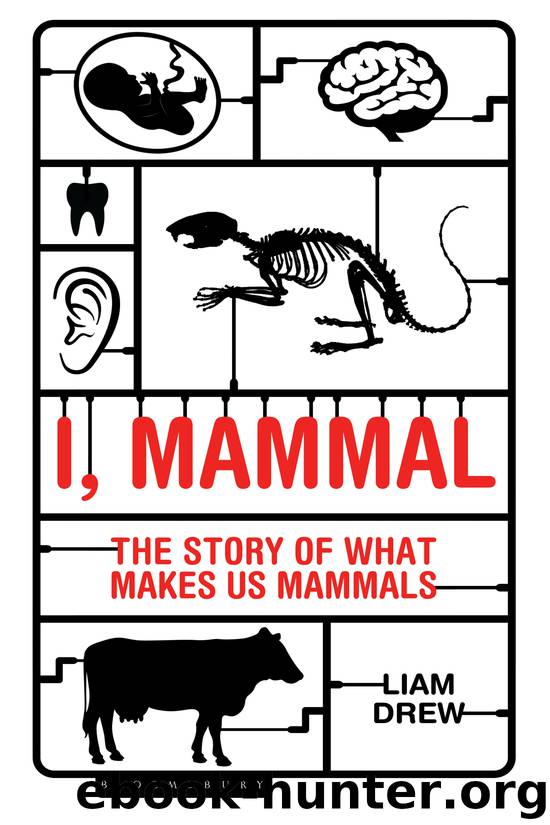I, Mammal by Liam Drew

Author:Liam Drew
Language: eng
Format: epub
Publisher: Bloomsbury Publishing
Parental economics and the rare mammalian father
Since the 1960s, whether or not animals care for their offspring – and, if they do, how much care they provide – has been expressed in the hard, cold language of mathematics. Natural selection has no interest in how maternal or paternal devotion pulls at the heartstrings, nor should biologists. Parental care provides obvious advantages in yielding stronger, fitter offspring – animals that heighten the parent’s chances of having grand-offspring. But the crucial issue for theoreticians trying to express nature’s seemingly limitless variability in parental behaviour in mathematical terms is that such care comes at a cost to the parent.
Their equations lay out how the degree to which an animal parents results from a trade-off between costs and benefits. The benefits come in the form of the offspring’s heightened survival and subsequent reproductive success, which are ultimately increases in the parents’ overall reproductive success. The costs accrue from time and energy spent on parenting restricting the parent’s chances to go off and breed further. From the interactions between these forces, natural selection finds a compromise between caring for offspring and trying to make more.1
It’s from this type of work that Robert Trivers’ ideas about parent–offspring conflict emerged, and his observations on weaning monkeys illustrate nicely how costs and benefits affect the mother. While the mother lactates, she is benefiting herself by aiding the suckling offspring’s development, but this comes at a cost to her because while she provides milk, she does not produce another infant.
A key aspect of this is that the costs and benefits are not constant: they change over time. Providing milk to a newborn monkey (or any mammal) is essential – the benefits are absolute. But as the youngster develops and can increasingly fend for itself, the benefits of lactation diminish for the mother until her investment in milk-making outweighs the payback she gets from it.
And this doesn’t just apply to monkeys. Across all mammals, theory suggests that how a species lactates – all the variety we encountered in the last chapter – will be shaped by a set of costs and benefits that change according to the particular biology of the animal in question. For example, mammals with access to abundant food in their breeding seasons produce more milk per day than those with scarcer resources, but the latter nurse for longer. The hooded seals that pump out 7kg (15lb) of milk a day for just four days are responding to the singular realities of living on pack ice in Arctic temperatures. The orangutan nursing her daughter for six to eight years does so in the context of a richly social group of primates, where the value of a mother–daughter relationship stretches beyond the purely nutritional.
And so it is with any aspect of parental investment: whether parenting occurs, and to what extent, will be determined by the exact circumstances of the species under consideration. Casting a wider net, for instance, the sporadic evolution of parenting in fish, amphibians or reptiles
Download
This site does not store any files on its server. We only index and link to content provided by other sites. Please contact the content providers to delete copyright contents if any and email us, we'll remove relevant links or contents immediately.
Sapiens: A Brief History of Humankind by Yuval Noah Harari(14389)
Sapiens by Yuval Noah Harari(5370)
Pale Blue Dot by Carl Sagan(5007)
Homo Deus: A Brief History of Tomorrow by Yuval Noah Harari(4918)
Livewired by David Eagleman(3772)
Origin Story: A Big History of Everything by David Christian(3692)
Brief Answers to the Big Questions by Stephen Hawking(3435)
Inferior by Angela Saini(3314)
Origin Story by David Christian(3201)
Signature in the Cell: DNA and the Evidence for Intelligent Design by Stephen C. Meyer(3138)
The Gene: An Intimate History by Siddhartha Mukherjee(3098)
The Evolution of Beauty by Richard O. Prum(2997)
Aliens by Jim Al-Khalili(2829)
How The Mind Works by Steven Pinker(2816)
A Short History of Nearly Everything by Bryson Bill(2698)
Sex at Dawn: The Prehistoric Origins of Modern Sexuality by Ryan Christopher(2529)
From Bacteria to Bach and Back by Daniel C. Dennett(2484)
Endless Forms Most Beautiful by Sean B. Carroll(2482)
Who We Are and How We Got Here by David Reich(2437)
